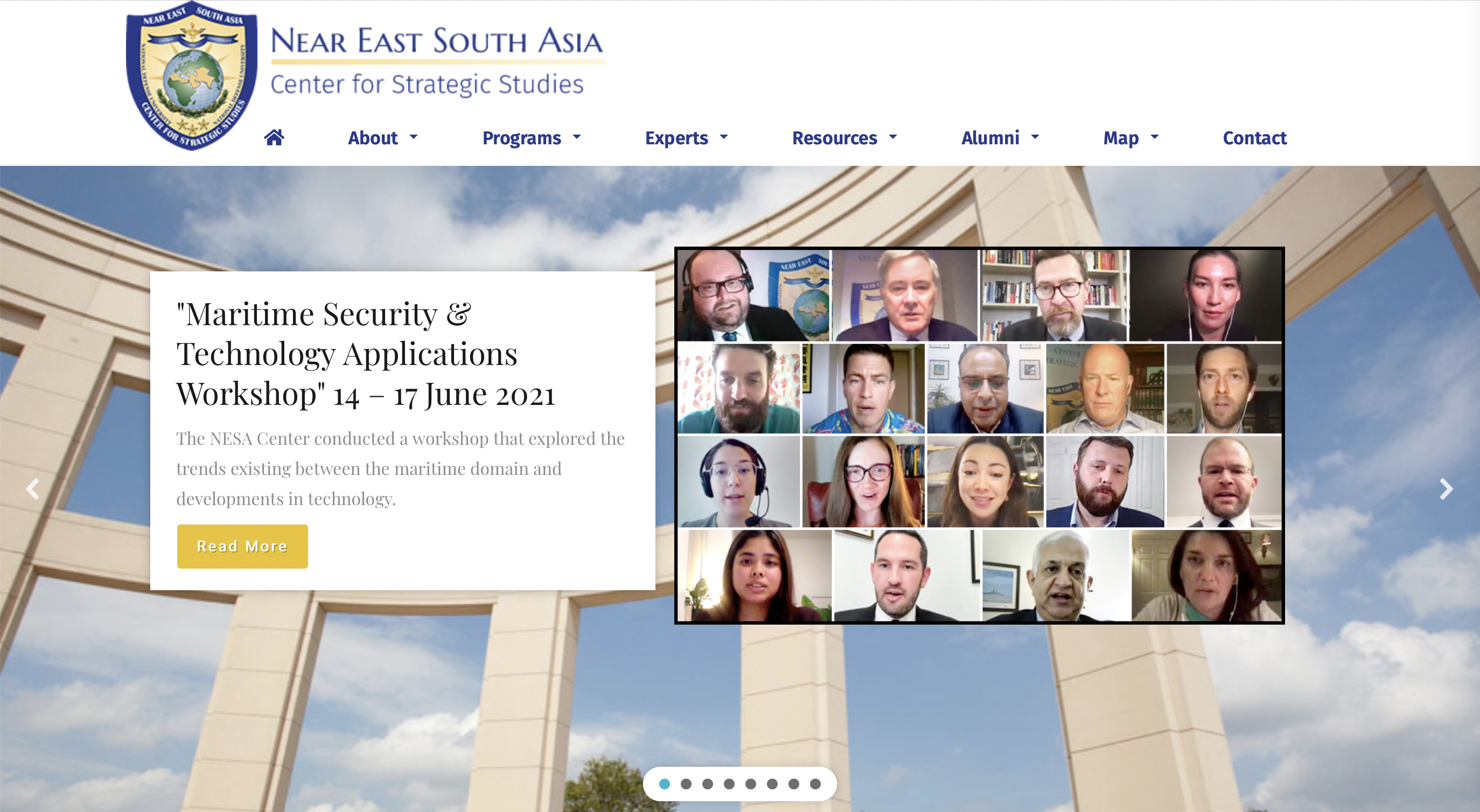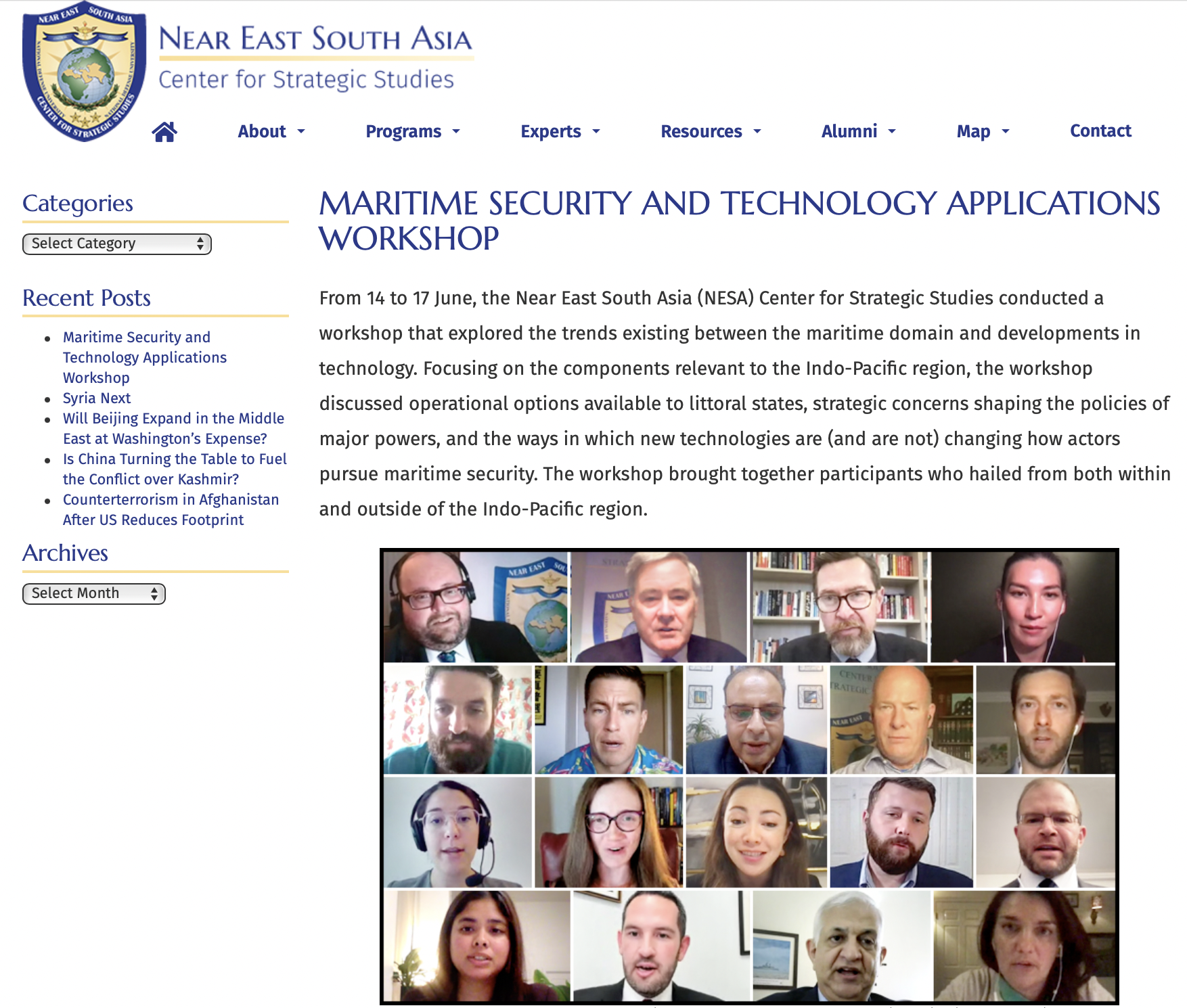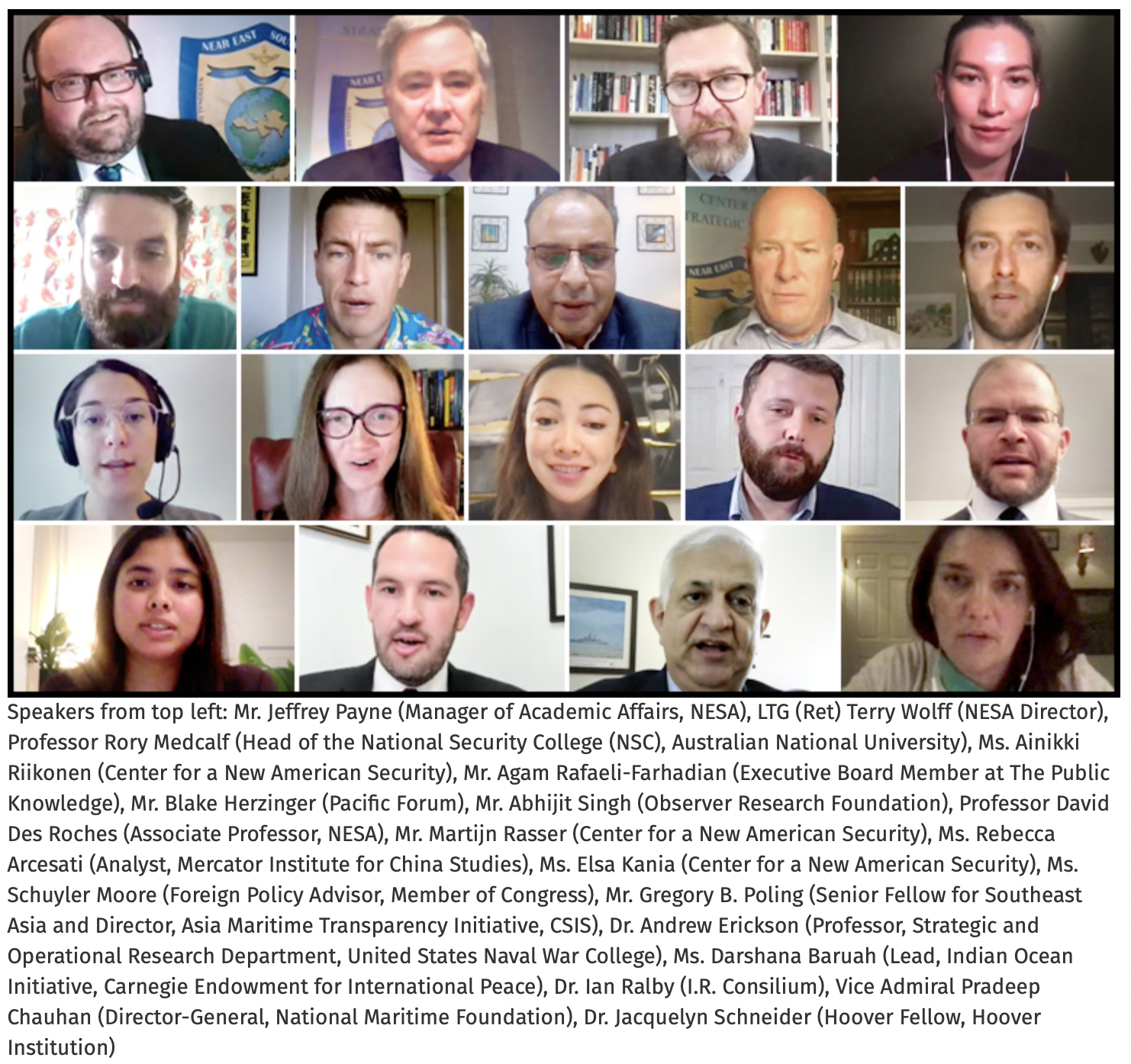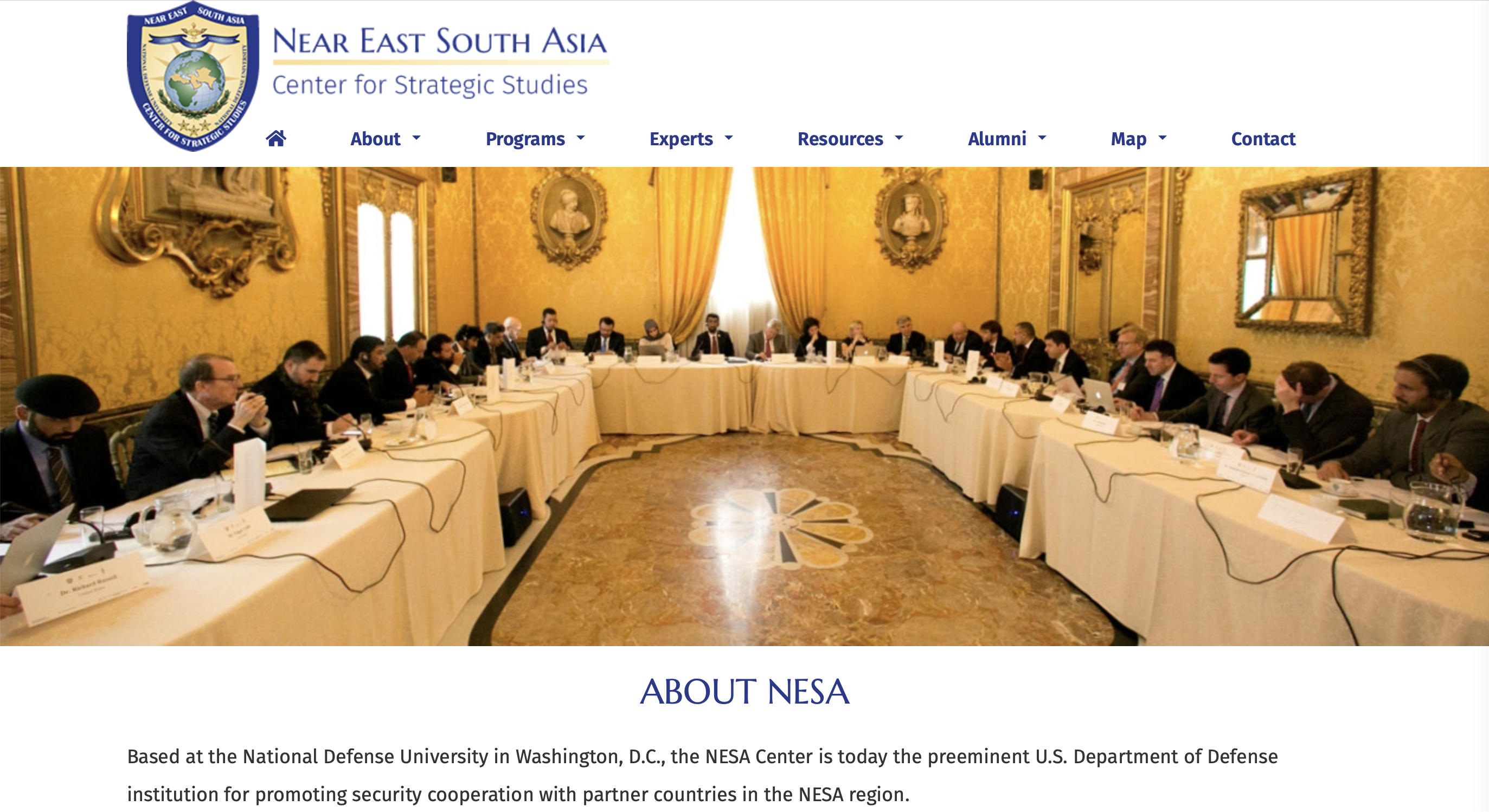Honored to offer ideas on “Data Sharing & MDA in the Indo-Pacific” for NDU’s Near East South Asia (NESA) Center for Strategic Studies
Andrew S. Erickson, “Info-Tech Opportunities: Data Sharing and MDA in the Indo-Pacific,” presented via Blackboard to audience across greater Indian Ocean Region for “Maritime Domain and Technology Transformations: A Workshop on Navigating Technological Applications’,” sponsored by Near East South Asia (NESA) Center for Strategic Studies, National Defense University, 17 June 2021.
Pleased to present on a panel with Greg Poling of CSIS. Many thanks to Dr. Jeffrey Payne for including me in this timely event!
MARITIME SECURITY AND TECHNOLOGY APPLICATIONS WORKSHOP
From 14 to 17 June 2021, the U.S. National Defense University’s Near East South Asia (NESA) Center for Strategic Studies conducted a workshop that explored the trends existing between the maritime domain and developments in technology. The workshop provided a digital environment for experts, security specialists, and government officials to gather to discuss how technological applications impact the maritime domain.
The 5th panel, entitled “Technological Opportunities – Data Sharing and MDA,” occurred on Thursday, 17 June at midnight Eastern Daylight Time in order to reach as much of the Indian Ocean Region as possible. While the overarching event is focused on technology, this panel focused on ways that maritime security services share information currently and what deficiencies exist in that process. During my presentation, I discussed how the exchange of information – from emerging challenges to best practices – impacts maritime security, particularly vis-à-vis PRC activities in the Indo-Pacific, with relevance to Indian Ocean littoral states. The panelists’ remarks were followed by a lively question and answer period.
Overall, focusing on the components relevant to the Indo-Pacific region, the workshop discussed operational options available to littoral states, strategic concerns shaping the policies of major powers, and the ways in which new technologies are (and are not) changing how actors pursue maritime security. The workshop brought together participants who hailed from both within and outside of the Indo-Pacific region.
This workshop was conducted digitally due to the ongoing pressures of the pandemic environment. A component part of NESA’s ongoing investment in Indian Ocean Region (IOR) focused programming, this workshop featured the support of NESA’s sister center, the Daniel K. Inouye Asia Pacific Center for Security Studies (DKI APCSS), United States Indo-Pacific Command (INDOPACOM), United States Central Command (CENTCOM), and United States Africa Command (AFRICOM). The workshop featured over 60 participants hailing from nineteen countries.
The workshop’s interest in technology was the result of partner requests from the Indian Ocean Region who wanted to explore how maritime security is being shaped by the cyber domain, new hardware innovations, and new approaches to data analysis. The workshop was facilitated by NESA’s Jeff Payne and Hassan Abbas.
Based at the National Defense University in Washington, D.C., the NESA Center is today the preeminent U.S. Department of Defense institution for promoting security cooperation with partner countries in the NESA region.
Established in 2000 when the U.S. Department of Defense recognized the need for an organization dedicated to the challenging region extending from North Africa across the Arabian Peninsula and into South Asia, the NESA Center works to enhance security cooperation between the U.S. and the Near East and South Asia by providing a collaborative space for policymakers to build security strategy and cultivate partnerships.
The NESA Center has the unique ability to leverage the collaborative interests and knowledge of U.S. military organizations including U.S. Central Command (CENTCOM), U.S. Africa Command (AFRICOM), U.S. Indo-Pacific Command (INDOPACOM), U.S. Army Central (ARCENT), the Joint Staff, as well as the U.S. Department of State, to render specialized conferences, seminars, workshops, and Track II diplomatic efforts.
The NESA Center boasts an alumni network of nearly 10,000 security professionals from over 120 countries spanning the NESA region and beyond. With the efforts of our partners and program participants, foreign policy communities around the world are better equipped to provide answers and analysis towards tough security challenges impacting our world.
MISSION
To build and sustain communities of influence and partnership among security professionals and other key stakeholders throughout the NESA region. The efforts of our expansive alumni network—numbering almost 10,000 NESA alumni—ensure that foreign policy communities around the world are becoming better equipped to provide answers and analysis towards some of the toughest security challenges impacting our world.
VISION
A secure, prosperous NESA region committed to collaborative, inclusive security and whole-of-government approaches to security and socio-political challenges.









































